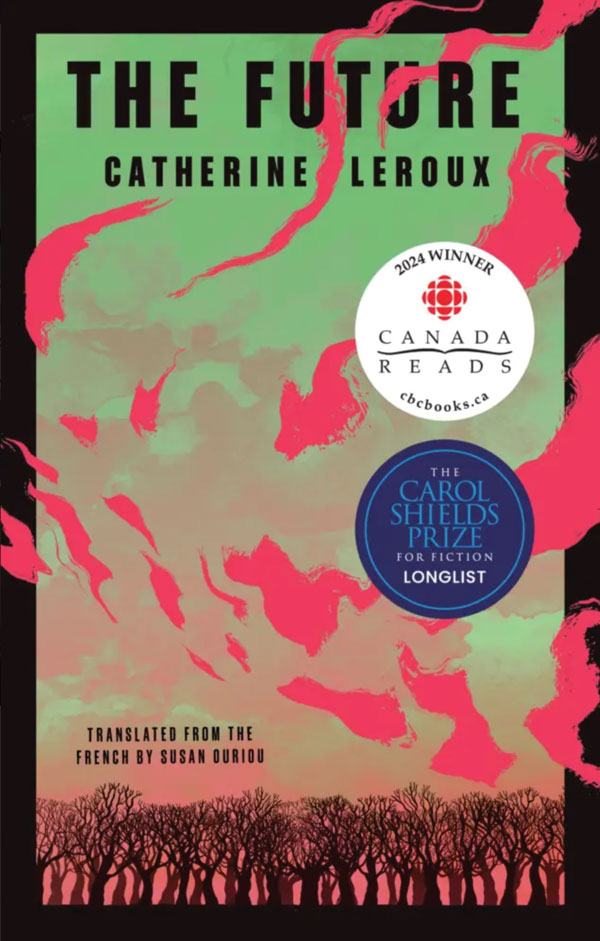Reader, a confession. I picked up Catherine Leroux’s new novel, The Future, only with great reluctance. Ever since a nightmarish preteen encounter with a book I did not then recognize as dystopian fiction, I’ve avoided the genre with the instincts of a small prey animal. This aversion has only intensified because of, well, reality. But The Future won CBC’s “Canada Reads 2024” contest. Maybe I’m an outlier.
Anyway, it’s a relief to report that while the setting of The Future is indeed dystopian—a ruined and toxic Fort Détroit—the story told here is one that won’t leave you despairing. This is essentially a quest journey: the main protagonist, Gloria, is a grandmother who has returned to the derelict house of her long estranged and recently murdered daughter, Judith. Gloria’s objective is to reunite with her two granddaughters, missing since Judith’s murder. Told by an anonymous narrator, the novel is structured like a series of concentric circles, spiralling from Gloria’s arrival in Detroit, to the ravine forest encampment of semi-feral children, or “wildlings,” who have run from the collapsed social order of the adult world to survive on their own, to the vanished girls themselves. A brief epilogue reinforces the novel’s overall vision of regenerative potential: the cycle of time and the transformation of all life forms offer possibilities for redemption and hope.
This is a self-consciously literary novel; we are meant to admire its experiments with technique and form, even if some of them come at the expense of consistently taut pacing. At its best, Leroux’s writing is luminous and enchanting. “Birds chirp incessantly as though it’s their responsibility to hoist the sun above the city.” From Gloria’s porch we witness a white mattress borne aloft in the dark (by unseen “wildlings”) “floating above the fields, farther and farther down the trail, before vanishing into the night.” Lessons about the past—because futures are always about the past—are slipped in through dialogue scenes involving local historian/gardener/wise man Solomon. Gloria is an empathetic study in a single, older woman’s survival. Likewise Leroux’s depiction of the gradual female friendship between Gloria and her crusty neighbour Eunice is one of the novel’s subtler accomplishments.
The Future is translated by Alberta-based Susan Ouriou, a fiction writer herself as well as a Governor General’s Award-winning translator. With its elements of magic realism and its ravine children speaking an idiosyncratic, unschooled tongue, the book cannot have been easy to translate from the original French. Ouriou rises to the occasion, enabling us to experience Leroux’s visionary future in all of its strangeness.
C.S. Wiesenthal is an author and editor in Edmonton.
_______________________________________


